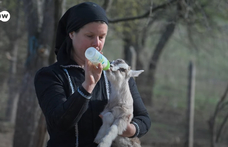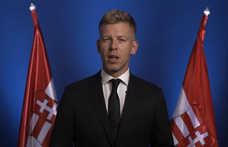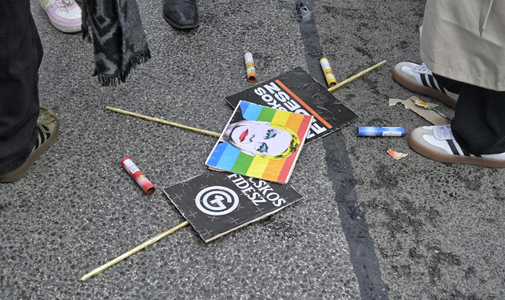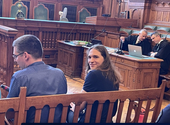THE WORD OF THE PEOPLE, THE WORD OF GOD?
It seems natural for politicians to tar their rivals and their promises with the populist brush in the heat of an election campaign - even if it isn't true. But the very word populism is problematic, and the accusation of populism can itself be populist if it is just a substitute for serious arguments. And what is the problem with a democratic politician making an appeal to the people?
It's awkward to be labeled a populist in Hungary. Nowadays, it is taken to mean demagoguery, dumbing-down, even a call to public disorder. Most recently it was Ferenc Gyurcsány, the prime minister, who tried to define what populism means in practice. Here at home, he said, the biggest enemy is populism, addressing the people in order to do whatever you like behind their backs, without actually coming up with a serious programme. The PM was clearly referring to Viktor Orbán and his Fidesz party, more particularly to their more recent idea of renationalising former state companies. But the two larger parties often accuse each other of demagoguery.
It is not always easy to draw the line between democracy and populism, between campaigning and demagoguery, between argument and deception. This is the view not of the man on the street, but of the great defender of modern democracy, Ralf Dahrendorf.
If we identify populism as not just repellent political behaviour, but as a political or ideological movement, then it's worth wondering where they "discovered it," and "what they used it for." But while the traditional political movements - liberalism, conservatism and socialism - can easily be traced back to their routes, this is harder to do with populism. It is generally regarded as having arisen in America, but the question of whether this happened in 19th century North America or in 20th century Latin America is a contentious one. At any rate, a farmers' defence movement arose in the less industrialised parts of the United States at the end of the 19th century. The American populist party (the US People's Party) even ran in the elections, before merging into the Democratic Party after 1912. The little man, the "tillers of the land" demanded a kind of politics in Washington which would protect them from the bankers of the East Coast.
Early populism was agrarian populism, and it spread widely in crisis-struck regions like Russia, Eastern Europe and France. Czech ruralists, Roman poparanists and the Hungarian populists wanted to do something about the backwardness of the countryside. In some places they advocated revolution, in others reform. Populists tended to identify 'the people' with the farming community - 'what's good for farmers is good for America'.
It is not always easy to draw the line between democracy and populism, between campaigning and demagoguery, between argument and deception. This is the view not of the man on the street, but of the great defender of modern democracy, Ralf Dahrendorf.
If we identify populism as not just repellent political behaviour, but as a political or ideological movement, then it's worth wondering where they "discovered it," and "what they used it for." But while the traditional political movements - liberalism, conservatism and socialism - can easily be traced back to their routes, this is harder to do with populism. It is generally regarded as having arisen in America, but the question of whether this happened in 19th century North America or in 20th century Latin America is a contentious one. At any rate, a farmers' defence movement arose in the less industrialised parts of the United States at the end of the 19th century. The American populist party (the US People's Party) even ran in the elections, before merging into the Democratic Party after 1912. The little man, the "tillers of the land" demanded a kind of politics in Washington which would protect them from the bankers of the East Coast.
Early populism was agrarian populism, and it spread widely in crisis-struck regions like Russia, Eastern Europe and France. Czech ruralists, Roman poparanists and the Hungarian populists wanted to do something about the backwardness of the countryside. In some places they advocated revolution, in others reform. Populists tended to identify 'the people' with the farming community - 'what's good for farmers is good for America'.














